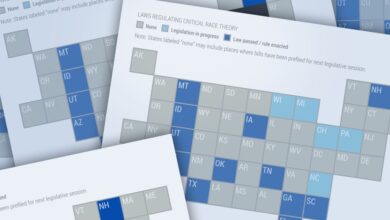U.S. Tells Harvard It Could Be Liable for Retaliation by Professors

[ad_1]
The U.S. Department of Justice said on Wednesday that Harvard University could be held responsible for retaliation carried out by its professors.
The government filed a brief in a case in which three graduate students sued Harvard, alleging that the university had failed to protect them from sexual harassment and threats of retaliation.
The three students, all members of Harvard’s anthropology department, had accused the university in federal court of “deliberate indifference to the retaliatory acts of its employees,” including an anthropology professor, John L. Comaroff. The students alleged that Harvard’s actions had violated Title IX and that the university’s investigation into claims of misconduct by Comaroff had been insufficient. They wrote in their complaint that “Harvard denied that Professor Comaroff engaged in repeated sexual harassment or retaliation.”
Comaroff returned to the classroom this week, teaching his first class since the 2020 investigation, according to The Harvard Crimson.
Harvard said in its response to the students’ complaint that officials had conducted a deep and rigorous investigation into allegations about Comaroff. Earlier this year the university placed the professor on one semester of unpaid leave following a finding that he violated the college’s sexual-harassment and professional-conduct policies.
The college argued that the students’ retaliation claims should be dismissed because the students “do not allege that Harvard retaliated against them, but rather seek to hold Harvard strictly liable for the purported retaliation of Comaroff and others,” according to a court filing. Even if Harvard was liable for the alleged retaliation of its professors, the college wrote, the conduct described by the students was not retaliation under Title IX.
But the Justice Department wrote in its Wednesday filing that Harvard’s argument ignores the fact that retaliation is typically carried out by employees. In other words, the retaliatory conduct of an institution’s employees can be the basis of a retaliation claim against the institution, the department wrote.
“Under Title IX, students have the right to report sex discrimination, including sexual harassment, to their schools without fear of reprisal,” the filing said. “For that to happen, schools must protect students who participate in the Title IX process from retaliation and respond effectively to known retaliatory acts of their employees.”
A Harvard spokesperson did not respond to The Chronicle’s request for comment on Wednesday. Comaroff’s lawyers declined to comment, noting that the professor is not a party in the lawsuit. A lawyer representing the three students — Margaret Czerwienski, Lilia Kilburn, and Amulya Mandava — said they are “glad to see the government affirm that Harvard cannot skirt responsibility for the retaliatory actions of its faculty.”
If “your employees retaliate and you know about it and you don’t do anything about it, then you might be on the hook for retaliation.”
Erin E. Butcher, a higher-education lawyer at the law firm of Bricker and Eckler, noted that the Justice Department’s brief is narrow.
“They don’t really get into the merits of the Harvard case on either side,” she said. What the department is saying, Butcher said, is that if “your employees retaliate and you know about it and you don’t do anything about it, then you might be on the hook for retaliation.”
Harvard investigated Comaroff in 2020 for allegations of sexual harassment and threats of retaliation, all of which the professor denied. The Chronicle wrote in 2020 about many of the students’ allegations. Earlier this year, a group of Harvard faculty members signed a letter supporting their colleague and criticizing Harvard’s investigation of him. The following week, the students sued Harvard. A day after the filing of the lawsuit, almost all of the professors withdrew their signatures from the letter.
Comaroff’s return to the classroom on Tuesday drew protests. During his first class, five graduate students walked out, the Crimson said, while dozens of other students held a demonstration outside. Comaroff’s lawyer told the newspaper that her client respects students’ right to protest, but that “the protesters’ goals are incompatible with the values of fairness and due process.”
[ad_2]
Source link






